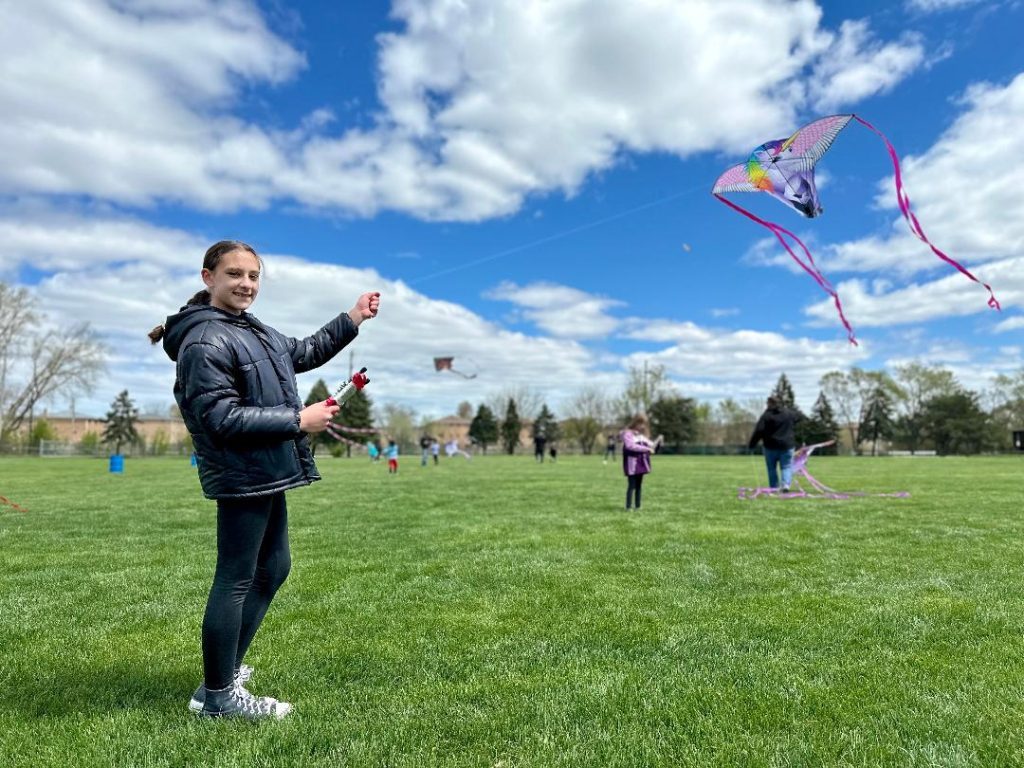
CAPITOL RECAP: Pritzker announces plans for broader reopening
By Capitol News Illinois
SPRINGFIELD – Gov. JB Pritzker said Thursday that Illinois will enter the “bridge” phase to full reopening on Friday, May 14. And barring any reversal of current trends, Phase 5, or full reopening, will begin on June 11.
He also announced that residents can now obtain COVID-19 vaccines from their physicians’ offices, rather than just designated vaccine sites, as public health officials continue to confront hesitancy within many communities to accept the vaccines.
Thursday’s announcement came as the state reached a new benchmark of having 55 percent of adults age 16 and over, and 80 percent of people age 65 and over, having received at least one dose of vaccine, according to the Illinois Department of Public Health. Meanwhile, the daily number of new cases, hospitalization rates and intensive care unit usage have all been falling or leveling off.
Under the bridge phase – a transition phase between the current Phase 4 mitigations and the virtually complete reopening of Phase 5 – certain capacity limits will be eased at various kinds of events. Restaurants, for example, will be allowed to increase from 25 to 30 percent of capacity, as long as people maintain six feet of distance from one another, while offices, personal care facilities and retail service counters can increase from 50 to 60 percent of capacity.
When the state reaches Phase 5, Pritzker said, virtually all mitigation restrictions will be lifted, although the state will still follow guidelines from the U.S. Centers for Disease Control and Prevention regarding wearing masks in large, crowded situations and maintaining safe social distancing.
As of Thursday, the seven-day rolling average of daily doses administered stood at 70,063, down from a peak of nearly 133,000 per day in mid-April. But with the supply of vaccines now large enough to provide vaccines to anyone who wants one, Pritzker said he hoped that making them available through physicians’ offices will make it more convenient for more people.
Still, there remain pockets of society that remain hesitant, whether that be for cultural, political or religious reasons, and the Pritzker administration is continuing its public relations campaign to reach out to those communities.
* * *
EDUCATION FUNDING: Citing an “improved” economic outlook, Gov. JB Pritzker announced Thursday his support to increase evidence-based education funding in the state by $350 million in fiscal year 2022 which begins July 1.
In his February budget proposal, Pritzker originally proposed flat spending for education, citing “financial uncertainty” amid the COVID-19 pandemic.
It would have been the second consecutive year in which the state failed to add $350 million to the funding formula – a number written into state statute as a goal aimed at driving new money to the districts that are furthest from funding “adequacy.”
The announcement comes following the latest report from the Commission on Government Forecasting and Accountability, which cited improved revenue numbers for the current fiscal year as the state works toward a full economic recovery from the pandemic.
Per that report, after revenues fell by $2.74 billion last April, base general fund revenues in April 2021 grew $1.779 billion, in part because April income tax payments were delayed one year ago.
Per the budgeting process, both Houses of the General Assembly must approve a spending plan, then Pritzker would have the opportunity to sign or veto it.
House Majority Leader Greg Harris, D-Chicago, in a news conference that occurred in Springfield at the same time Pritzker’s was going on in Chicago, said lawmakers are well into the process of planning a budget for the upcoming fiscal year. He said he was optimistic about the latest COGFA report, but the state’s financial picture is still somewhat bleak.
“We’re seeing some very good numbers in the state,” he said. “That being said, we still are looking at next year, a budget deficit of about $1.4 billion that we’ll have to solve for, and some new revenue could certainly help that. But it’s not going to solve the entire problem.”
One key part of the governor’s proposal to balance the budget is to make several changes to the corporate tax structure – changes he calls closing corporate tax “loopholes,” which Republicans call important business “incentives.”
* * *
COVID-19 UPDATE: Although the rate of spread of the virus has been declining, the Illinois Department of Public Health continues to report a steady stream of new cases each day. On Thursday, the agency reported 1,778 new confirmed and probable cases over the previous 24 hours and 40 additional deaths.
The preliminary seven-day statewide average case positivity rate for cases as a percent of tests performed stood at 3.0 percent, the lowest it has been since March 27
As of late Wednesday night, 2,055 people in Illinois were reported hospitalized with the disease, including 483 patients in intensive care units and 243 on ventilators.
* * *
UNEMPLOYMENT UPDATE: Illinois continued to see a drop in the number of new unemployment claims over the past week as of Thursday, May 6, although the total number of people unemployed remained at historically high levels.
The Illinois Department of Employment Security reported 15,134 new jobless claims were filed during the week that ended Saturday, May 1. That was down from 17,141 from the prior week, but it was considerably less than the 74,476 workers who filed initial claims during the same week a year ago.
Meanwhile, U.S. Department of Labor reported a total of just under 250,000 Illinois workers were receiving continuing regular unemployment benefits at the end of April.
* * *
REDISTRICTING ‘HYPOCRISY:’ Illinois House Republicans continue to demand a “fair” redistricting process, following a news report depicting Democratic lawmakers meeting behind a closed door to discuss the mapmaking process.
The “secretive” room on Capitol grounds where House Democrats are said to be drawing maps was first reported by WCIA-TV’s Mark Maxwell. In response to the report, House Republicans held a news conference Thursday outside of the room to address their concerns.
The U.S. Census Bureau has not released official block-level data that Republicans and advocacy groups say is necessary to ensure a full accounting of Illinois’ citizens. That data isn’t expected to be released until Sept. 30, which is past the initial June 30 deadline written in the Illinois Constitution for the General Assembly to draw maps.
The Census Bureau has released less descriptive data, including data from the American Community Survey, which doesn’t include the detailed, block-level data showing exactly where people live – the kind of data needed to draw equal-size legislative districts.
State Rep. Ryan Spain, R-Peoria, said the ACS data is not accurate and is not appropriate to use when drawing the map.
Democrats have not said exactly what data has been used in the mapmaking process thus far. They did, however, point to the House Redistricting Committee’s 30 public hearings on the matter, noting they heard testimony from advocacy groups and the public providing input on the process.
During an unrelated news conference Thursday, Democratic leaders brushed off the Republicans’ criticisms, saying this is the normal process that state lawmakers have used in years past.
“We are just following the process like we always do, (the Republicans are) doing the same thing,” said Rep. Lisa Hernandez, D-Cicero, assistant majority leader and chair of the Redistricting Committee.
She said ACS data is just one source, but not the sole source being used to draw the maps.
* * *
ATTORNEY GENERAL CYBERSECURITY: Illinois Attorney General Kwame Raoul told a House committee Wednesday that his office has implemented new safeguards since an April 10 ransomware attack that compromised the office’s network and affected office employee’s email accounts.
Raoul said his office is working with federal law enforcement to evaluate the extent to which the network was compromised, what information may have been exposed, how it happened, and what can be done to prevent future breaches.
Since the attack, Raoul said his office has set up multiple layers of security, and put in place application-level security and monitoring, network authentication requirements, and firewalls. In addition, his office has implemented “continuous vulnerability scanning,” and intrusion detection and response protocols for their network, he said.
Raoul said his office has also set up a hotline for residents who may have concerns about the breach to receive answers to their questions while the investigation is ongoing. The hotline can be reached by calling 1-833-688-1949 between the hours of 8 a.m. and 5 p.m. Monday through Friday.
Rep. Brad Halbrook, a Pana Republican, asked Raoul why his agency wasn’t properly prepared for and had not anticipated such a cybersecurity attack. Raoul said, moving forward, his office has reached out to “internal IT experts” to improve its network and technology.
In February a state auditor general’s report found the attorney general’s office had not implemented adequate internal controls related to cybersecurity programs and practices.
It recommended that the office perform a comprehensive formal risk assessment to identify information most susceptible to attack. It also recommended the office classify its data to establish the types of information most susceptible to attack.
Raoul said his office has begun the comprehensive risk assessment that was suggested in the audit report.
The attorney general’s office also created a new information systems security analyst position, which is tasked with spearheading the “formalization of the (o)ffice’s risk assessment and security efforts into a comprehensive, well-documented cybersecurity program.”
Raoul said that position was created in August 2020.
* * *
EVICTION MORATORIUM UPDATE: A federal judge invalidated a nationwide eviction moratorium on Wednesday but the decision will not impact the moratorium on rental evictions in Illinois, according to housing attorneys.
The decision from U.S. District Judge Dabney L. Friedrich involves the eviction moratorium issued by the U.S. Department of Health and Human Services, through the U.S. Centers for Disease Control and Prevention, that applied to all rental properties nationwide.
The CDC eviction moratorium, which was set to expire on June 30, was issued in an effort to prevent the further spread of COVID-19.
Friedrich ruled that federal law does not authorize the CDC to impose a nationwide eviction moratorium.
Gov. JB Pritzker’s press secretary Jordan Abudayyeh said in an email the court opinion does not affect the residential eviction moratorium imposed by the governor, via executive order, in March 2020 and extended several times.
Pritzker’s moratorium applies to renters who submit a declaration saying they are unable to pay rent as a result of the pandemic and would be rendered homeless if they were evicted. Eligible renters must earn less than $99,000 annually if filing taxes as a single person, or $198,000 if filing tax returns jointly.
Michael Steadman, a Chicago attorney who represents landlords, said the federal court decision doesn’t impact Illinois because the basis of the Illinois moratorium comes from the governor’s powers under the state statute regarding emergencies.
Bob Palmer, policy director for Housing Action Illinois, said housing advocates plan to continue to encourage Pritzker to extend the statewide eviction moratorium until enough rental assistance has been distributed to mitigate the effects of lifting the moratorium.
Those federal rent assistance dollars would be distributed primarily though the signing of House Bill 2877, a bill which recently passed both chambers of the General Assembly and was sent to the governor Wednesday.
* * *
ELECTIONS BILL: Two Republican senators have introduced legislation to standardize the way local election authorities across Illinois handle elections, from the training of election judges to posting information about delays in election night ballot counting.
Sens. Sally Turner, of the Logan County town of Beason, and Sue Rezin, of Morris, said during a virtual news conference Thursday their bill is intended to provide more transparency and give voters more confidence in how elections in Illinois are conducted.
“The more we let the individuals know, the voters know, how these processes work, the better educated they are, the more helpful that is to county clerks,” Turner said.
The proposal, introduced last month as an amendment to Senate Bill 1326, dubbed the Election Standardization Act, addresses four areas of election practices.
First, it would require each county and county clerk to establish training courses for election judges that incorporate material developed by the Illinois State Board of Elections. Currently, ISBE is required to develop those materials but counties are not required to use them.
Those training materials would cover such topics as voter verification, campaign-free zones, electioneering, vote-by-mail procedures, provisional voting, and ballot handling and processing.
Second, whenever there is a delay of delivering precinct tallies to a county clerk’s office, it would require the election judges in that precinct to submit an affidavit explaining the delay, and it would require the county clerk to post that information on the clerk’s website.
Third, after each election, it would require the State Board of Elections to audit 5 percent of all election authorities, selected at random, to verify that they properly handled mail ballots that were received after the close of polls on Election Day.
And finally, it would require election authorities to post on their public websites the processes and procedures they use for handling mail-in ballots.
The bill, which currently has no Democratic cosponsors, has been assigned to the Senate Executive Committee’s subcommittee on elections, but no hearings on it have yet been scheduled.
* * *
POLICE MEMORIAL: After a delay due to the COVID-19 pandemic last year, members of Illinois’ law enforcement community gathered in Springfield Thursday to honor officers killed in the line of duty in 2019 and 2020.
In a ceremony at the Illinois State Capitol, the names of 16 Illinois officers killed in the line of duty over the past two years, as well as six historic honorees, were read and added to the Illinois Police Officers Memorial on the Capitol grounds.
Speaking during the ceremony, Gloria Bodnar, member of the Illinois Police Officers Memorial Committee, expressed gratitude to the ongoing struggles police officers face on a day-to-day basis. She said names etched on the memorial walls would be remembered by friends and loved ones forever. Her husband, William Bodnar Jr., was killed in duty in 1974 and his name appears on the wall.
“It’s not how these officers died that made them heroes, it’s how they lived. We are here today to honor their life, their service and their stories,” Bodnar said. “This memorial stands as a symbol that is dedicated to the men and women killed in the line of duty whose names are now etched in stone.”
State Treasurer Michael Frerichs also spoke at the ceremony, offering his gratitude to the service of Illinois police officers and condolences to the families.
Frerichs echoed words from President Abraham Lincoln’s Gettysburg Address, saying that the honored officers “shall not have died in vain.”
Following remarks from speakers, memorial plaques were presented to the families and colleagues of each of the 16 officers added to the memorial wall.
* * *
SEX ED OVERHAUL: Legislation that would overhaul sex education in Illinois was among several bills that passed the Senate Executive Committee Wednesday, May 5.
The committee, following a long and contentious debate, advanced legislation that would require public schools to teach sex ed by July 2023.
Senate Bill 818 and two amendments attached to the bill would mandate schools to include “comprehensive personal health and safety education and comprehensive sexual health education” in the curriculum for the subject.
Introduced by Sen. Ram Villivalam, D-Chicago, the legislation would require age-appropriate education for students grades K-12 on the subject of consent among other additions to the sex ed curriculum.
Proponents of the legislation testified that children are most vulnerable to sexual abuse between ages 7 and 13, with the median age of abused minors being 9 years old. By educating children at an early age about appropriate and inappropriate conduct, they have the tools to report to adults when they are suffering from abuse, advocates said.
The bill also includes educational provisions targeted at students who identify as LGBTQ, students with disabilities and students with children.
Representatives of the Illinois Association of School Boards and the Catholic Conference of Illinois testified against the bill.
Private and charter schools under the state’s Critical Health Problems and Comprehensive Health Education Act, are required to provide education on the prevention, transmission and treatment of sexually transmitted infections.
SB 818 amends the statute that such education would have to be “medically accurate” and “culturally appropriate,” the latter being defined in the bill as affirming of gender identity, gender expression, sexual orientation and sexual behavior. It also removes the inclusion of abstinence-only education.
A coalition representing Catholic, Islamic, Orthodox Judaism and Baptist schools submitted opposition to the bill along the same lines.
The IASB said it didn’t oppose the spirit of the legislation, but the fact that it creates an unfunded mandate for sex education instead of leaving the decision to local districts.
Under the bill, parents can opt their students out of sex education with no penalty to the student by submitting a written objection.
The committee voted to advance SB 818 in an 11-6 vote along partisan lines.
* * *
HIV TRANSMISSION: The Senate Executive Committee advanced an amendment to House Bill 1063 Wednesday, May 5, to remove criminal statutes regarding the transmission of HIV. It was filed by Rep. Carol Ammons, D-Urbana, and sponsored in the Senate by Sen. Robert Peters, D-Chicago. It passed through the committee in an 11-4 vote to advance to the Senate floor.
Current Illinois law allows for individuals to be charged with “criminal transmission of HIV,” while also allowing for law enforcement to compel criminal defendants to test for HIV/AIDS in order to determine whether to charge them for the crime.
“Those living with HIV deserve to be able to receive treatment for their condition, and not risk arrest or incarceration,” Peters said in a release Wednesday. “It’s time we end the stigma surrounding sexually transmitted diseases and start treating them like the medical conditions that they are.”
The bill would eliminate the charge from Illinois statute, and would amend the AIDS Confidentiality Act –a statute that protects Illinoisans from having an HIV-positive status disclosed – to remove exemptions for law enforcement from the provision.
Lawmakers in the House voted 90-9 last month to pass the legislation. It now only needs majority support in the Senate to be sent to Gov. JB Pritzker for his signature.
* * *
ABOLITION AMENDMENT: The Illinois House voted Wednesday to endorse a proposed U.S. constitutional amendment that would finally eliminate what some see as the last vestige of slavery in the United States – forced labor by people convicted of crimes and sentenced to prison.
House Joint Resolution 7, by Rep. Mary Flowers, D-Chicago, calls for passage of the proposed “abolition amendment,” which seeks to eliminate what’s known as the “punishment clause” of the 13th Amendment, which abolished slavery after the Civil War.
The 13th amendment reads in part, “Neither slavery nor involuntary servitude, except as a punishment for crime whereof the party shall have been duly convicted, shall exist within the United States, or any place subject to their jurisdiction.”
Those words, “except as a punishment for a crime,” have been used in the years since the Civil War to require prisoners, a disproportionate number of whom are people of color, to perform manual labor, typically for little or no compensation.
“Because you have to understand that since the beginning, African Americans have provided free labor to this country, and even incarcerated, they are providing free labor,” Flowers said during debate on the resolution. “But you forget that these men who are providing free labor while they’re incarcerated, they have families that need their support. And so if they’re working, they should be paid.”
In December, congressional Democrats introduced a joint resolution that would add another amendment to the Constitution, effectively eliminating the punishment clause. It would read: “Neither slavery nor involuntary servitude may be imposed as a punishment for a crime.”
U.S. Sen. Jeff Merkley, D-Ore., chief sponsor of the federal proposal, issued a statement saying the 13th Amendment continues to operate as a means of profiting from involuntary labor.
State Rep. Tim Butler, R-Springfield, noted during the debate that many state constitutions contain similar language but that some, most recently Utah and Nebraska, have passed state-level amendments removing those provisions. He supported the resolution, which passed on a voice vote.
* * *
D.C. STATEHOOD: On Wednesday, May 5, the House passed House Joint Resolution 16 urging Congress to pass legislation making Washington, D.C., the 51st state.
“Washington, D.C., has over 700,000 residents, more than the states of Wyoming or Vermont, and comparable to the states of Alaska and North Dakota,” Rep. Will Guzzardi, D-Chicago, said on the House floor. “However, these 700,000 Americans have no U.S. senators, no voting representation in the U.S. House, no ability to control their own budget. The city that is the seat of our great government, a 47-percent African American city, is an emblem of disenfranchisement.”
Earlier this year, the U.S. House passed legislation authorizing statehood for the district, which would be renamed Washington, Douglass Commonwealth. But that legislation passed on a straight party-line vote, 216-208, with no Republicans supporting it.
It is now sitting in the evenly-divided U.S. Senate where its chances of passage are considered negligible, primarily because it would allocate two U.S. Senate seats and one House seat to the heavily Democratic-leaning new state, tipping the balance of power in Congress that much toward the Democrats.
Guzzardi’s resolution passed the Illinois House on a similar party-line vote, 71-42. It now moves to the state Senate. It is symbolic in nature, merely expressing to federal officials the sentiment of the Illinois General Assembly.
* * *
MLK STATUE: Illinois Secretary of State Jesse White on Tuesday said it’s time for the state to construct a new statue commemorating Martin Luther King Jr., as the current statue’s rendering “does not properly reflect Dr. King,” White said in a news release.
White said he would personally contribute the first $5,000 in funding the new statue that would be situated in a more prominent location on the Capitol grounds.
The current 300-pound bronze likeness of King is located across the street from the Capitol building, on the corner of 2nd Street and Capitol Ave. — referred to as Freedom Corner.
King’s likeness on the Capitol grounds was built in 1988, and he was the first non-Illinois resident to be memorialized with a statue, according to the Springfield visitor’s center.
King’s efforts to oppose segregation in all segments of American society, from housing and schools to public accommodations and private businesses, are often credited with propelling the civil rights movement into mainstream popularity in the 1950s and 60s.
White’s statement comes after House Speaker Emanuel “Chris” Welch, D-Hillside, created a new committee tasked with reviewing statues and monuments on state property. The committee, which met for the first time on April 21, heard testimony from professors and state government associations about how to guide the review process.
King’s statue is located across the street from the Statehouse because of an administrative rule that only allows historical figures related to Illinois to be installed on the Capitol grounds.
At the meeting, the board of the Office of the Architect of the Capitol approved a motion to revise that rule.
* * *
SCHOLARSHIP TAX CHANGE: The Catholic Conference of Illinois is lobbying against proposed tax changes for the 2022 fiscal year that would reduce an income tax credit gained for donations to private scholarships.
In a letter released Tuesday, Cardinal Blase Cupich of the Archdiocese of Chicago joined bishops representing the state’s other five dioceses – administrative districts under the Catholic Church – asking Catholics to call their local legislators and ask them to oppose the measure put forward by Gov. JB Pritzker, which they called “an important matter of public policy and social justice.”
The governor’s February budget outline for FY 2022 proposes nine policy changes to the corporate tax code. One of these changes applies to both businesses and individuals: a reduction to the state income tax credit gained for donating to an approved scholarship granting organization.
The scholarship granting organization must provide tuition to children of families whose income is at or below 300 percent of the federal poverty level for that census tract area. Many of the scholarships go toward the private tuition of Catholic educational institutions in the state.
Under current law, 75 percent of the donation can be claimed as credit against the state’s income tax. If Pritzker’s preferred budget was to be enacted, the credit would be reduced to 40 percent of the donation.
That law was originally put into place as part of the Invest in Kids Act during budget negotiations under Republican former Gov. Bruce Rauner in 2017. It was part of the package creating an evidence-based funding formula to overhaul the way the state funds public schooling.
Pritzker has received criticism from business leaders and Republican lawmakers for referring to his suggested tax changes as “closing corporate loopholes,” since they were originally implemented as deliberate policy changes under previous governors or Pritzker himself.
* * *
VETERANS HOME UNPREPARED: A state watchdog report into the deadly COVID-19 outbreak at the LaSalle Veterans’ Home found multiple failures that contributed to 36 veterans deaths, stemming primarily from the home’s complete lack of infection prevention plans or policies.
The report also found deficiencies in communication and staff training at the LaSalle home, as well as repeated lack of compliance with personal protective equipment protocols.
The LaSalle home, one of four state-run veterans homes, had no documented COVID-19 specific policies or outbreak plan, despite the well-known risks of coronavirus transmission in places like long-term care facilities, according to the report from the Illinois Department of Human Services’ Office of the Inspector General.
The 50-page report depicts a facility that was woefully unprepared to handle an infection outbreak, leading to a chaotic and uninformed outbreak response that was exacerbated by disorganized leadership at the department and the home.
The IDHS investigation included analyzing COVID-19 data, trends and protocols in the LaSalle home and assessing IDVA’s preparation, response and compliance with protocols and regulations. It also included 29 individual interviews and the review of hundreds of documents.
The report documented serious leadership failures at the Illinois Department of Veterans’ Affairs, from the former LaSalle Home Administrator Angela Melbrech, to the former IDVA Director Linda Chapa LaVia and her Chief of Staff Tony Kolbeck.
The watchdog report comes after the outbreak at LaSalle that killed about one-quarter of the home’s population. Chapa LaVia called for the DHS Inspector General investigation on Nov. 24 when the home had reported 27 veteran deaths.
Since then, both Melbrech and Chapa LaVia have vacated their positions. An IDVA spokesperson said Friday Kolbeck had resigned from the department as well.
Gov. JB Pritzker, who appointed Chapa LaVia in 2019, said he hired her to lead the IDVA because of her role in investigating the deadly outbreak of Legionnaires’ disease at the Quincy Veterans’ Home.
“She seemed like an ideal person to be able to root out the problems in our veterans homes. But I have to admit that, if I knew then what I know now, I would not have hired her,” Pritzker said Friday at an unrelated news conference.
* * *
CALLS FOR CRIMINAL INVESTIGATION: Some Republicans in the General Assembly, including House Minority Leader Jim Durkin, are calling for a criminal investigation into the COVID-19 related deaths at the state-run LaSalle Veterans’ Home.
The push for a criminal probe comes after a state investigative report was released Friday that found there were widespread failures at the LaSalle facility and the Illinois Department of Veterans’ Affairs that contributed to 36 resident deaths there since November.
The report from the state Department of Human Services’ Office of the Inspector General found the facility failed to prepare for an outbreak, lacked infection prevention plans or policies, and had major issues with communication, staff training and education. It also found that senior officials at the IDVA and LaSalle facility were not taking control or actively managing the outbreak as it became a crisis.
Durkin, a former Cook County prosecutor, said a criminal investigation into the deaths should be initiated because there is a criminal statute specifically addressing abuse or neglect of a long-term care facility resident.
The criminal statute states, in part, that a person commits criminal neglect of a long term care facility resident when he or she recklessly “performs acts that cause a resident’s life to be endangered, health to be injured…or that create the substantial likelihood that an elderly person’s or person with a disability’s life will be endangered, (or) health will be injured….”
Durkin said the Illinois Attorney General could conduct a criminal investigation into the deaths at LaSalle, citing a precedent set at the Quincy Veterans’ Home.
In 2018, then-Attorney General Lisa Madigan, a Democrat, launched a criminal investigation into how the administration of then-Gov. Bruce Rauner, a Republican, responded to the deadly outbreak of Legionnaires’ disease at Quincy between 2015 and 2018 that killed 13 veterans.
That investigation concluded in 2020, under current Attorney General Kwame Raoul, also a Democrat, who found there was not a basis to bring charges.
A spokesperson for the Raoul’s office did not immediately respond to a request for comment Monday.
* * *
COVID-19 UPDATE: While Gov. JB Pritzker and public health officials expressed optimism for the return of large events Tuesday, May 4, amid declining COVID-19 positivity rates, he stressed that the state remains “a long way from herd immunity,” and encouraged residents who have not been vaccinated yet to do so.
“The trends are encouraging, but we must be cautious as we move forward,” Illinois Department of Public Health Director Dr. Ngozi Ezike said in a Tuesday statement. “As more venues reopen, it is critical that we increase the number of people who are vaccinated.”
As of Tuesday, over 9.4 million vaccine doses had been administered statewide, with 40,361 doses being administered Monday.
A total of 4.1 million Illinois residents, or 32.5 percent of the state’s population, have been fully vaccinated against COVID-19.
Public health officials reported an additional 2,211 confirmed and probable cases of COVID-19 Tuesday as the state’s seven-day rolling case positivity rate stood at 3.3 percent. The state reported an additional 19 deaths Tuesday.
* * *
ECONOMY SHRINKS: The Illinois economy shrank by 4 percent in 2020 as the COVID-19 pandemic wreaked havoc on many of its sectors, although there were signs of a recovery taking place late in the year.
Those preliminary numbers, released last week by the U.S. Department of Labor’s Bureau of Economic Analysis, showed that the leisure, hospitality and food service sector was the hardest hit by the pandemic, reporting a nearly 30 percent drop in economic output for the year.
That was due to the forced closure of bars, restaurants, theaters, amusement parks and most tourist attractions in the early phases of the pandemic, as well as the cancellation of large conventions and business meetings.
According to BEA, real gross domestic product decreased in all 50 states and the District of Columbia in 2020. Utah, with a 0.1 percent shrinkage rate, fared the best, while Hawaii’s state economy shrank 8 percent. The average shrinkage rate for the U.S. as a whole was 3.5 percent.
Accommodation and food services were a contributing factor to the declines in all 50 states and D.C., and they were the leading contributor to the decreases in 38 states plus D.C.
Other industries that suffered in Illinois included transportation and warehousing, down 14 percent; nongovernment services, down 12.3 percent; manufacturing, down 7.3 percent; wholesale trade, down 5 percent; and retail trade, down 2.3 percent.
The one bright spot in the state’s economy was the agriculture sector, which grew by nearly 68 percent over the previous year. That was largely the result of a bad harvest year in 2019, followed by a good one in 2020.
When the numbers are broken out on a quarterly basis, however, the biggest drop in economic output occurred during the 2nd quarter, April-June, when Illinois was under the most severe economic restrictions. The economy began to pick up in the 3rd quarter, and by the 4th quarter was growing at an annualized rate of 3.5 percent.
But the recovery has not been even across all sectors, and the leisure and hospitality industries continue to suffer.
* * *
RANSOMWARE ATTACK: A data breach reported by Attorney General Kwame Raoul’s office nearly three weeks ago was a ransomware attack, according to a Thursday, April 29, news release.
Raoul’s office has launched a new hotline to provide information to residents following the data breach first reported on April 10.
A Thursday news release stated that the office “continues to evaluate the full extent of the compromise,” including what specific data may have been compromised in the breach.
“While we do not yet know with certainty what was compromised in the ransomware attack, we are working closely with federal law enforcement authorities and outside technology experts to determine what information was exposed, how this happened, and what we can do to ensure that such a compromise does not happen again,” Raoul said in the release.
Raoul’s office stated that the purpose of the hotline is to allow residents who may have concerns about the breach to receive answers to their questions while the investigation is ongoing.
The hotline can be reached by calling 1-833-688-1949 between the hours of 8 a.m. and 5 p.m. Monday through Friday.
The Chicago Sun-Times reported Thursday that a ransomware group “potentially linked to Russia,” known as DoppelPaymer, had posted documents it had stolen from the Attorney General’s office over a period of two weeks.
Ransomware is a malicious software that collects the victim’s personal data and threatens to publish it unless a ransom is paid to the hacker.
A public notice on the Attorney General’s website said that leaked information could include sensitive personal information such as individuals’ names, addresses and social security numbers.
The notice stated that all information about the breach, including the exact extent of what information was stolen, will be made available at www.illinoisattorneygeneral.gov as it becomes available.
* * *
DELIVERY SERVICES: Senate Bill 672 would create the “Fair Food Delivery Act,” requiring third-party delivery services such as DoorDash and Uber Eats to have formal agreements with the restaurants and retailers for whom they deliver before they can use the merchant’s name, likeness, menus or other intellectual property.
Sen. Melinda Bush, D-Grayslake, the chief sponsor of the bill, said it is designed to prevent those restaurants and retailers from being taken advantage of by the delivery services.
The bill would only apply to delivery services that have an online presence such as a website or smart phone app.
Bush said when issues arise about a delivery, such as an incorrect order or added delivery fees, customers often complain to the restaurant, even though the restaurant may not have known that the order was placed by the delivery service.
She also said she negotiated the legislation with delivery service companies and described those talks as “fruitful,” but admitted they were not able to agree on a key element.
“These companies want to be able to list all of the restaurants in their area that you can order food from, even if they don’t have an agreement with those restaurants,” she said. “We believe if they don’t have an agreement, that’s proprietary and they shouldn’t be able to list that restaurant when they can’t deliver for it.”
The bill cleared the Senate by a vote of 55-0 Thursday, April 29, and now heads to the House for consideration.
* * *
PUBLIC EMPLOYEE UNIONS: The Senate also passed a bill Thursday, April 29, aimed at rolling back some of former Gov. Bruce Rauner’s actions regarding public employee unions.
Senate Bill 525, by Sen. Omar Aquino, D-Chicago, would provide that a state employee’s eligibility to be a member of a collective bargaining unit be based on the duties that employee actually performs rather than the duties listed in a written job description.
“The Labor Relations Board, primarily under the Rauner administration, issued decisions overturning decades of case law allowing employees to be designated confidential, supervisory or managerial based on written job descriptions and not the duties an employee actually performs,” Aquino said on the Senate floor. “Employees who had been part of the bargaining unit for decades saw their collective bargaining rights taken away despite never having performed the duties in the written job description that caused them to be excluded.”
Aquino said the bill came about through an agreement with the Department of Central Management Services and the American Federation of State, County and Municipal Employees, or AFSCME, the state’s largest public employee union.
Republican Sen. Jason Barickman, of Bloomington, argued against the bill, saying that currently about 93 percent of the state’s workforce is part of a collective bargaining unit, making it difficult for supervisors to manage their employees because so few individuals qualify as supervisors. He said passage of the bill would exacerbate that problem.
Aquino, however, said the bill would only return the state’s labor relations to the conditions that existed before the Rauner administration, “and every step that we can do to go back to those days before that administration is a better day for our state.”
The bill passed, 44-11.
* * *
LGBTQ DATA: Hospitals and state agencies in Illinois would be required to gather more demographic data about COVID-19 patients to determine how the pandemic has affected the LGBTQ community under a bill that cleared the Senate Thursday, April 29, on a 40-1 vote.
Sen. Mike Simmons, D-Chicago, the first openly gay member of the Senate and lead sponsor of Senate Bill 2133, said that information is needed to ensure visibility and justice for historically marginalized communities.
The bill, which is supported by the AIDS Foundation of Chicago and the gay rights advocacy group Equality Illinois, calls on hospitals and state agencies to gather specific data about the age, sex, disability status, sexual orientation and gender identity of COVID-19 patients.
“Any pandemic relief and recovery must be rooted in an understanding of what disparities got us here,” Simmons said in a statement. “This vote (Thursday) is a declaration to LGBTQIA+ communities that we see them and are working for a recovery that includes them.”
He referenced studies that he said show members of those communities are more likely to have chronic conditions and other risk factors that can increase vulnerability to COVID-19.
Sen. Darren Bailey, R-Xenia, was the only senator to vote against the bill. Eighteen other senators did not cast a vote.
* * *
NURSING HOME VISITATION: Another bill that passed the Senate Thursday, April 29, would require nursing homes and other long-term care facilities to adopt procedures to prevent social isolation among their residents, including making technology available for online visits with loved ones when in-person visits are not possible.
Senate Bill 2137, cosponsored by Democratic Sen. Jacqueline Collins, of Chicago, and Republican Sen. Donald DeWitte, of St. Charles, passed unanimously, 53-0.
“This last year was incredibly difficult for seniors who were unable to touch or hug their loved ones during the COVID-19 pandemic, and SB 2137 will ensure that moving forward we place more of a balance between physical and social-emotional health,” DeWitte said in a statement.
The bill provides that online visitation and other forms of social isolation prevention measures would be in addition to, not a substitute for, in-person visitation and that each patient’s individualized visitation plan should give priority to the resident’s own preference over the resident’s representative.
It also provides that long-term care facilities could apply for grants from the state’s civil monetary penalty fund, as well as other state and federal funds, to pay for assistive and supportive technology.
Starting Jan. 1, 2023, facilities that fail to comply with the new rules could be subject to administrative penalties.
Capitol News Illinois is a nonprofit, nonpartisan news service covering state government and distributed to more than 400 newspapers statewide. It is funded primarily by the Illinois Press Foundation and the Robert R. McCormick Foundation.
Local News
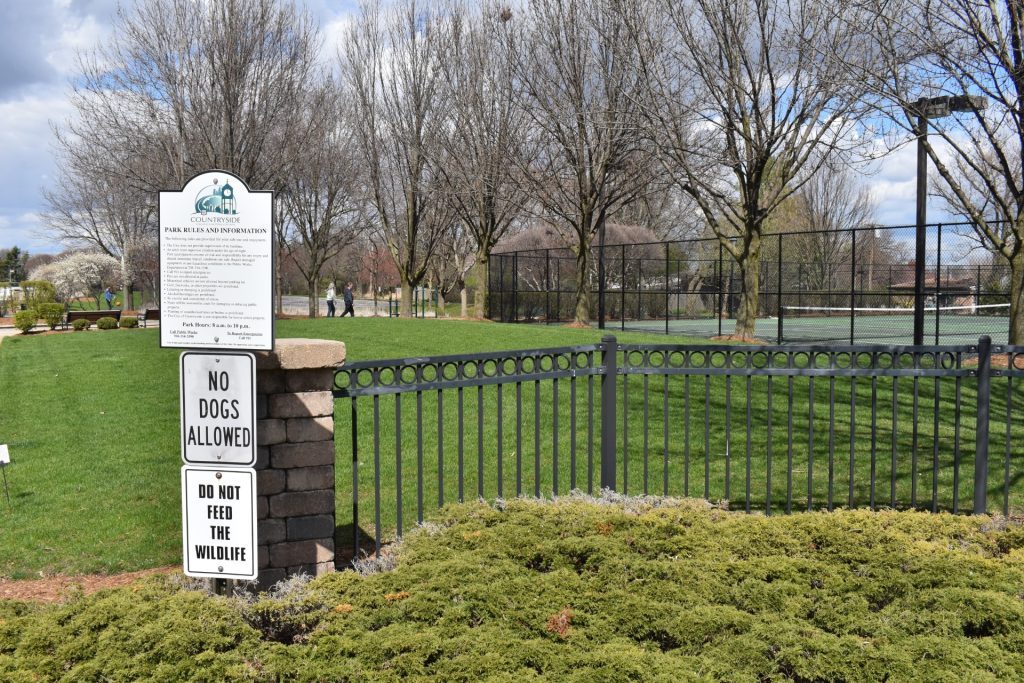
Countryside puts dog park on hold, will require leashes in two parks
Spread the loveBy Steve Metsch The city of Countryside has put on hold building a dog park, but canines and their owners are still in store for a treat. The city council has unanimously approved a plan to permit dogs in City Park and Countryside Park this year. Previously, they were not allowed in the…

Bridgeview approves auto repair shop
Spread the loveMoves up time for May 1 village board meeting By Steve Metsch Bridgeview is getting a new automotive repair shop. The village board at its April 17 matinee meeting approved a special use permit that will allow a repair shop at 9010 S. Beloit Ave. There was no discussion among trustees. The board…
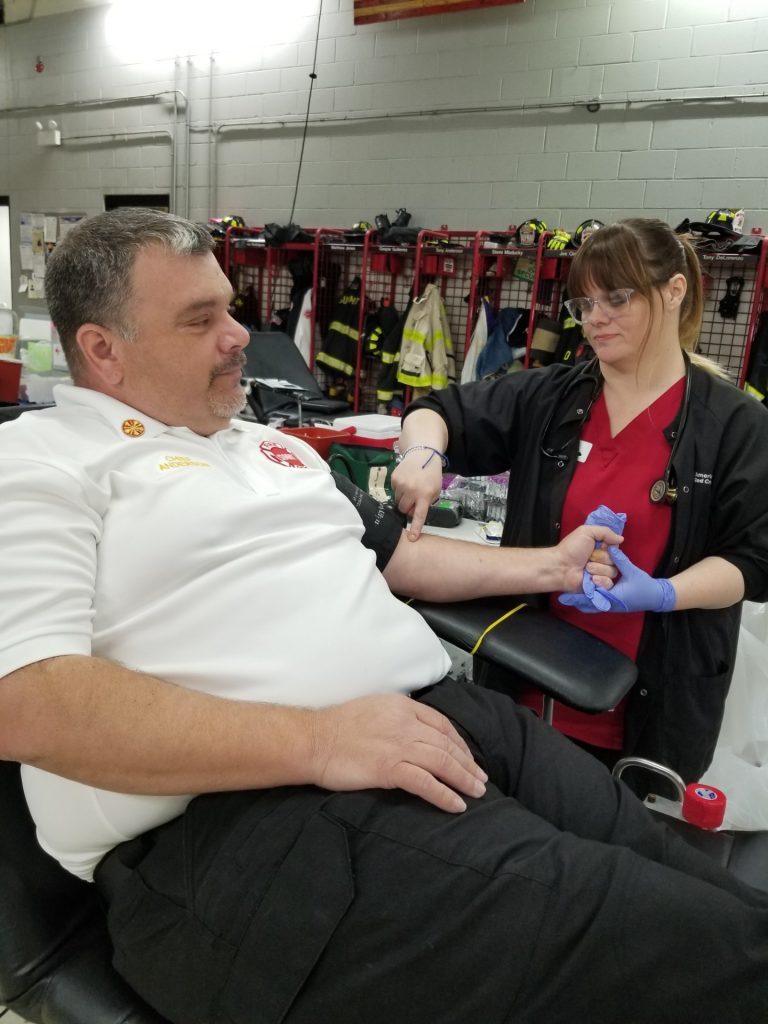
Summit Fire Department blood drive draws a crowd
Spread the loveBy Carol McGowan The Summit Fire Department, along with the Village of Summit, and the Argo Summit Lions Club held a blood drive this past Saturday, and it drew a crowd that even impressed the American Red Cross. It took place from 9 a.m. until 2 p.m. with non-stop donors walking through the…

Hodgkins toasts village businesses
Spread the loveBy Carol McGowan Hodgkins Mayor Ernest Millsap and the Board of Trustees celebrated the village’s businesses at its annual Business Appreciation Breakfast on April 10. Over 100 people gathered at the Hodgkins Administration Center for a hearty breakfast hosted by the village. Representatives from many businesses that are located in or that work…
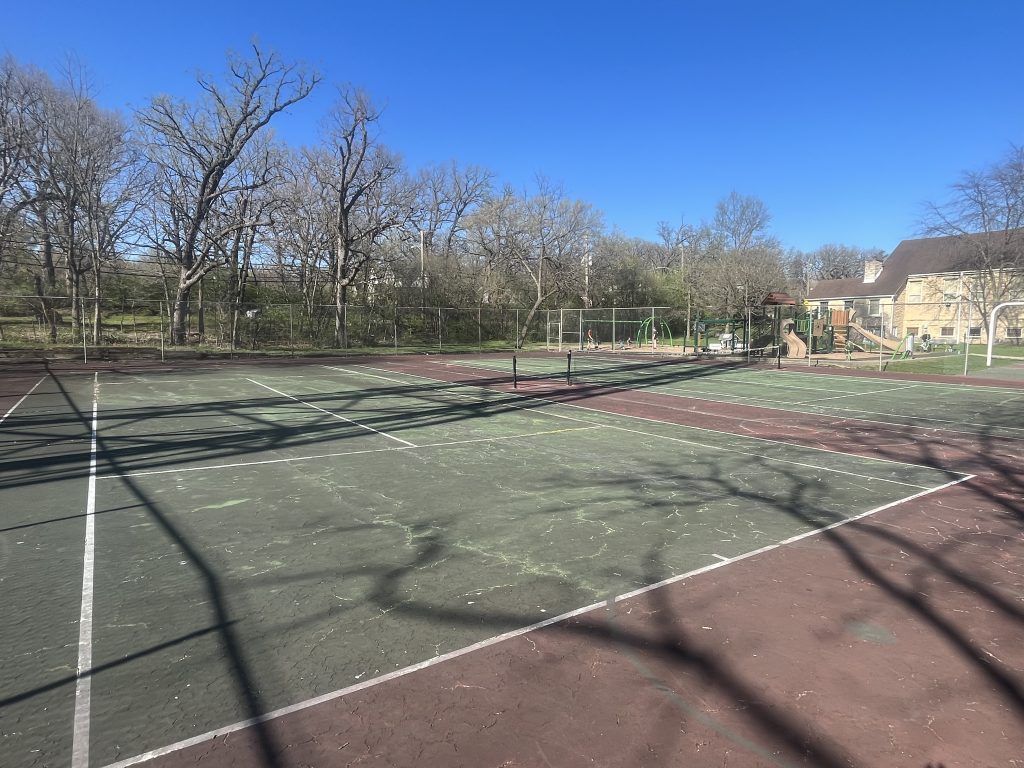
Pickleball courts coming to Palos Park
Spread the loveBy Jeff Vorva There will finally be outdoor pickleball in Palos Park. In a process that went longer than anticipated, the Palos Park Village Council was able give the green light to get a pickleball project started on the Village Green. The council voted April 8 to award the contract to U.S. Tennis…

First Secure Bank to host American Eagle gold coin sale
Spread the loveFrom staff reports First Secure Bank & Trust of Palos Hills announced its annual May sale of 1-ounce and ¼-ounce American Eagle Gold Coins, produced by the U.S. Mint, will take place from 10 a.m.to noon on Saturdays, May 4, May 11, May 18 and May 25. The sale will take place at…

Donate teddy bears to our local police
Spread the love. Peggy Zabicki Your correspondent in West Lawn 3633 W. 60th Place • (773) 504-9327 . Have you ever seen the 1955 movie The Night of the Hunter? The children in this movie show such bravery and acceptance in what life has thrown at them. They have to deal with unimaginable events and sadness. …

Boy Scouts collecting tattered flags for disposal
Spread the love. By Mary Stanek Your correspondent in Archer Heights and West Elsdon 3808 W. 57th Place • (773) 517-7796 . Goodbye April, hello May. Our American Flag, the symbol of our country, should always be treated with respect. But after bearing Chicago’s brutal winters and hot blazing summers along with being in the…
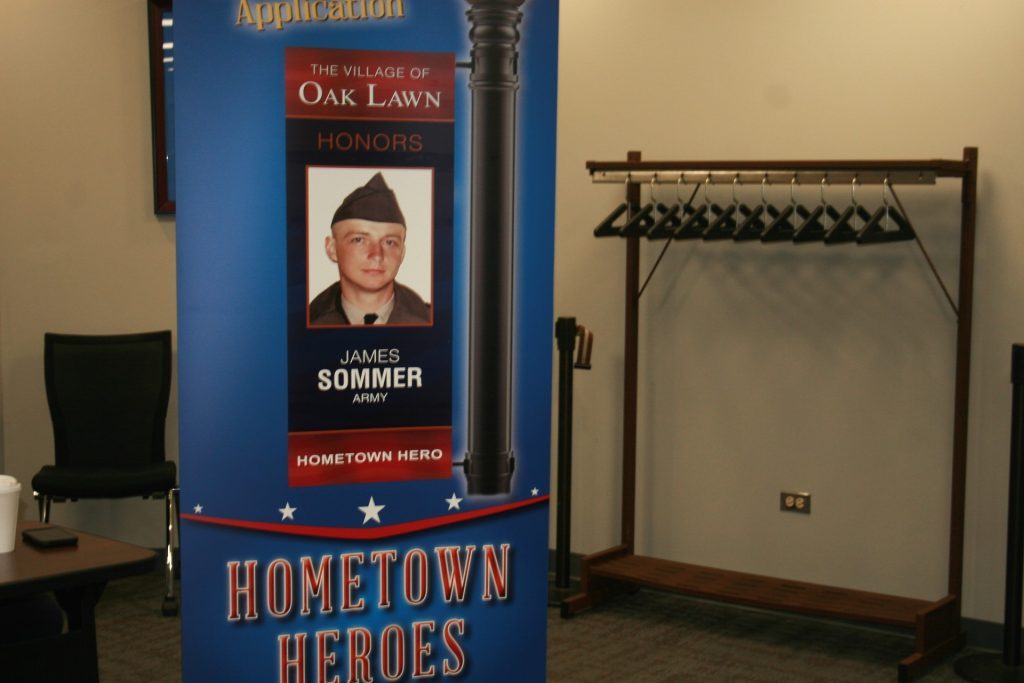
Oak Lawn trustee says village needs state grocery tax
Spread the loveBy Joe Boyle An Oak Lawn trustee said that Gov. J.B. Pritzker’s proposal to eliminate the state’s grocery tax will be costly for the village. Trustee William “Bud” Stalker (5th), accompanied by Mayor Terry Vorderer, recently returned from a fact-finding trip to Springfield where they learned more about the governor’s proposal to eliminate…
Neighbors

Countryside puts dog park on hold, will require leashes in two parks
Spread the loveBy Steve Metsch The city of Countryside has put on hold building a dog park, but canines and their owners are still in store for a treat. The city council has unanimously approved a plan to permit dogs in City Park and Countryside Park this year. Previously, they were not allowed in the…

Bridgeview approves auto repair shop
Spread the loveMoves up time for May 1 village board meeting By Steve Metsch Bridgeview is getting a new automotive repair shop. The village board at its April 17 matinee meeting approved a special use permit that will allow a repair shop at 9010 S. Beloit Ave. There was no discussion among trustees. The board…

Summit Fire Department blood drive draws a crowd
Spread the loveBy Carol McGowan The Summit Fire Department, along with the Village of Summit, and the Argo Summit Lions Club held a blood drive this past Saturday, and it drew a crowd that even impressed the American Red Cross. It took place from 9 a.m. until 2 p.m. with non-stop donors walking through the…

Hodgkins toasts village businesses
Spread the loveBy Carol McGowan Hodgkins Mayor Ernest Millsap and the Board of Trustees celebrated the village’s businesses at its annual Business Appreciation Breakfast on April 10. Over 100 people gathered at the Hodgkins Administration Center for a hearty breakfast hosted by the village. Representatives from many businesses that are located in or that work…

Pickleball courts coming to Palos Park
Spread the loveBy Jeff Vorva There will finally be outdoor pickleball in Palos Park. In a process that went longer than anticipated, the Palos Park Village Council was able give the green light to get a pickleball project started on the Village Green. The council voted April 8 to award the contract to U.S. Tennis…

First Secure Bank to host American Eagle gold coin sale
Spread the loveFrom staff reports First Secure Bank & Trust of Palos Hills announced its annual May sale of 1-ounce and ¼-ounce American Eagle Gold Coins, produced by the U.S. Mint, will take place from 10 a.m.to noon on Saturdays, May 4, May 11, May 18 and May 25. The sale will take place at…

Donate teddy bears to our local police
Spread the love. Peggy Zabicki Your correspondent in West Lawn 3633 W. 60th Place • (773) 504-9327 . Have you ever seen the 1955 movie The Night of the Hunter? The children in this movie show such bravery and acceptance in what life has thrown at them. They have to deal with unimaginable events and sadness. …

Boy Scouts collecting tattered flags for disposal
Spread the love. By Mary Stanek Your correspondent in Archer Heights and West Elsdon 3808 W. 57th Place • (773) 517-7796 . Goodbye April, hello May. Our American Flag, the symbol of our country, should always be treated with respect. But after bearing Chicago’s brutal winters and hot blazing summers along with being in the…

Oak Lawn trustee says village needs state grocery tax
Spread the loveBy Joe Boyle An Oak Lawn trustee said that Gov. J.B. Pritzker’s proposal to eliminate the state’s grocery tax will be costly for the village. Trustee William “Bud” Stalker (5th), accompanied by Mayor Terry Vorderer, recently returned from a fact-finding trip to Springfield where they learned more about the governor’s proposal to eliminate…






